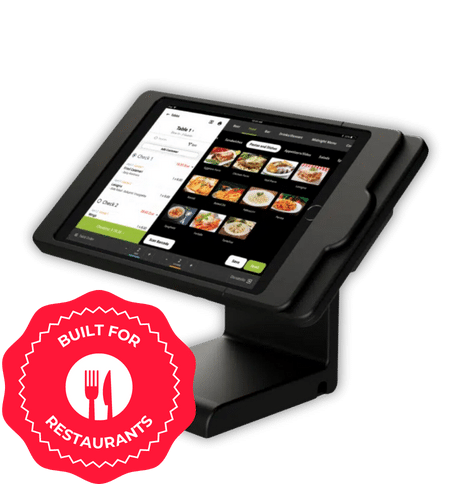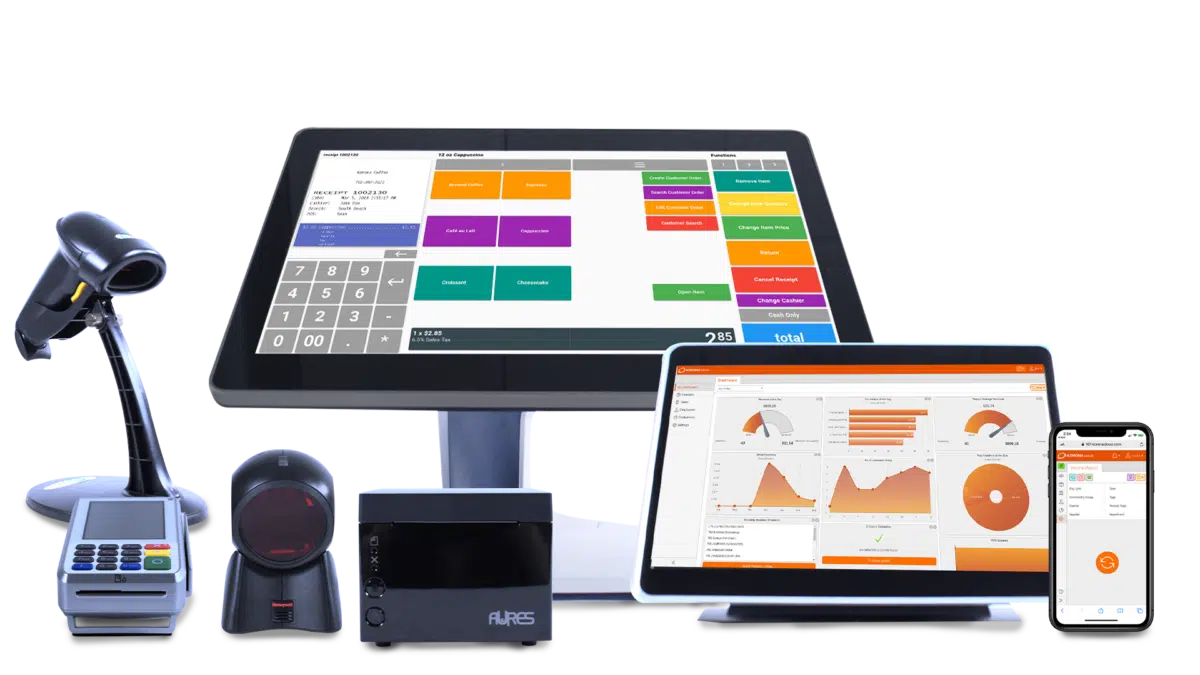How much does Restaurant POS Software require and what's included?
Understanding the Value of POS Software Application in Modern Retail Operations
In today's retail landscape, the duty of POS software application has come to be progressively substantial. These systems have changed from fundamental money registers to diverse devices that boost different elements of procedures. They not just improve deals however also offer insights that can form business approaches. Recognizing just how these systems influence consumer experience and supply monitoring is important for any kind of merchant seeking to continue to be affordable. The effects of these developments call for more exploration.
The Evolution of POS Software Application: From Transaction Processing to Comprehensive Solutions
As retail atmospheres evolved, so too did the performance of Point of Sale (POS) software, which moved from basic deal processing systems to advanced, all-inclusive remedies. Originally, POS systems largely took care of sales deals, managing cash signs up and printing invoices. With developments in innovation, these systems started incorporating stock management, client partnership management, and sales analytics. Stores recognized the need for real-time information and smooth operations, prompting the growth of cloud-based POS services that enabled remote access and boosted scalability.Additionally, the rise of mobile business demanded POS systems to adjust, making it possible for transactions through smartphones and tablets. This transformation not just streamlined procedures yet also enhanced reporting capabilities, allowing stores to make educated decisions based on thorough data insights. As a result, modern-day POS software has actually ended up being essential to retail strategy, offering as a multifunctional tool that sustains various operational elements past mere deal handling.
Enhancing Consumer Experience Via Advanced POS Includes
While numerous merchants concentrate on operational effectiveness, advanced POS features significantly focus on improving the customer experience. Modern POS systems now use capabilities such as mobile repayment alternatives, customized promos, and customer commitment programs, which cultivate an even more interesting buying setting. By improving the checkout procedure, these systems reduce wait times, permitting consumers to total purchases promptly and efficiently.Additionally, integrated customer connection administration (CRM) functions make it possible for stores to track buying actions and choices, promoting tailored advertising and marketing efforts. This personalization not just develops consumer commitment however additionally improves total satisfaction.Moreover, advanced analytics given by POS systems can help retailers recognize customer trends and choices, allowing them to make informed decisions about product offerings and shop layouts. Eventually, the emphasis on customer experience through sophisticated POS features not just satisfies contemporary customer assumptions yet likewise drives repeat service and increases income for stores.
Streamlining Inventory Administration With Integrated POS Solutions
Integrated POS systems play a vital duty in improving stock administration by automating procedures that generally needed significant manual effort (Restaurant POS Software). These systems make it possible for retailers to track inventory degrees in real time, removing inconsistencies that frequently occur from manual supply matters. With functions such as barcode scanning and automatic stock replenishment informs, businesses can preserve excellent stock levels without overstocking or stockouts.Furthermore, integrated POS systems promote accurate projecting by evaluating historical sales data, allowing retailers to make educated acquiring choices. This predictive capability assists organizations adjust to altering customer demands and seasonal fads more effectively.Additionally, the centralization of inventory data across numerous sales networks boosts visibility, enabling retailers to handle their stock much more effectively. Eventually, the integration of POS systems right into supply administration simplifies operations, reduces human error, and adds to enhanced profitability
Real-Time Sales Tracking and Reporting for Informed Decision-Making
Accurate inventory administration lays the foundation for effective sales monitoring and coverage. Real-time sales tracking makes it possible for sellers to monitor sales efficiency as it happens, giving immediate understandings into customer investing in patterns and fads. This capacity permits services to react swiftly to fluctuations popular, optimizing supply degrees and lessening overstock or stockouts.Moreover, incorporated POS systems help with the generation of in-depth records, highlighting key metrics such as sales by category, amount of time, and specific items. Such coverage capacities empower merchants to make data-driven choices, identifying successful strategies and locations needing renovation.

The Role of POS Software Application in Consumer Relationship Management
POS software program plays a crucial function in enhancing client relationship administration by enabling stores to carry out customized advertising techniques. By analyzing consumer information, services can tailor interactions and promos to meet specific choices. Additionally, these systems facilitate the development of enhanced commitment programs that urge repeat business and strengthen client involvement.
Personalized Advertising Methods
As stores progressively look for to improve client commitment and involvement, personalized marketing methods have actually become a necessary part of reliable consumer connection management. POS software plays an important function in this procedure by accumulating and analyzing client data, making it possible for stores to tailor advertising and marketing initiatives to specific choices and buying habits. By leveraging insights from purchase histories, retailers can produce targeted promotions and individualized communications that resonate with clients, fostering a deeper connection. Additionally, the assimilation of POS software program with consumer partnership administration systems permits for seamless tracking of consumer interactions, guaranteeing that marketing strategies remain pertinent and timely. This data-driven strategy not just improves consumer contentment but additionally drives sales and motivates repeat organization, strengthening the retailer's market placement.
Improved Commitment Programs
Retailers are progressively acknowledging the importance of commitment programs in fostering long-term customer relationships and boosting general engagement. POS software application plays an important duty in the advancement and administration of these programs, allowing stores to track consumer preferences, habits, and acquisitions effectively. By leveraging data analytics, organizations can create individualized benefits and motivations that resonate with specific customers, thus increasing engagement in loyalty programs. Additionally, POS systems allow seamless integration with electronic systems and mobile apps, helping with easy access to benefits and promos. This not check here only improves client complete satisfaction yet also drives repeat service. Inevitably, POS software application equips retailers to cultivate deeper links with their clients, transforming periodic customers right into dedicated clients via targeted and meaningful engagement techniques.
Integrating POS Solutions With Ecommerce Operating Systems for Omnichannel Success
To accomplish real omnichannel success, smooth assimilation between click here point-of-sale (POS) systems and ecommerce systems is crucial. This assimilation enables sellers to combine their stock administration, guaranteeing that item schedule is precisely reflected across both online and physical shops. Clients profit from a natural shopping experience, where they can conveniently switch in between channels without encountering discrepancies.Furthermore, incorporated systems assist in real-time information sharing, allowing services to assess customer behavior and preferences better. This data-driven approach permits retailers to tailor marketing strategies and maximize stock levels, inevitably boosting customer fulfillment and driving sales.Additionally, the capacity to procedure deals across systems streamlines procedures, minimizing the danger of mistakes and improving overall efficiency. As retailers increasingly take on omnichannel methods, the integration of POS systems with e-commerce systems stays a vital consider attaining sustainable growth and preserving affordable benefit in the vibrant retail landscape.

Future Patterns in POS Technology and Their Impact on Retail Workflow
As retail operations evolve, future patterns in POS technology are set to reshape the landscape significantly. The rise of cloud-based services, advancements in mobile POS systems, and the benefits of AI combination are among the key growths anticipated to boost performance and client experience. These innovations promise to streamline processes and foster a more vibrant retail setting.
Cloud-Based Solutions Increase
With the increasing dependence on modern technology, cloud-based POS remedies are transforming retail operations by providing enhanced adaptability and scalability. These systems allow merchants to gain access to real-time data from anywhere, assisting in better decision-making and customer support. By leveraging cloud facilities, organizations can reduce upfront costs related to software and hardware installments while making sure seamless updates and maintenance. Furthermore, cloud-based options sustain multi-location management, enabling retailers to integrate stock and sales throughout various electrical outlets easily. This adaptability is essential in today's hectic market, where consumer preferences change quickly. As more stores take on these remedies, they can anticipate better functional performance and a more receptive approach to market demands, ultimately boosting client complete satisfaction and loyalty.
Mobile POS Innovations
The development of retail technology remains to form operations, particularly with the increase of mobile POS advancements. These systems allow retailers to refine purchases anywhere within the shop, boosting client engagement and streamlining checkout processes. Mobile POS solutions improve supply monitoring by permitting instantaneous accessibility to stock levels, helping team assist consumers extra efficiently. In enhancement, they promote individualized purchasing experiences through incorporated consumer data and loyalty programs. As smart phones become progressively sophisticated, retailers are adopting attributes such as digital receipts and contactless repayments, in addition optimizing the purchasing journey. The shift towards mobile POS not just improves functional efficiency but likewise aligns with the growing consumer preference for benefit, guaranteeing that stores stay affordable in a swiftly evolving market.
AI Integration Benefits
AI assimilation stands for a transformative jump in POS technology, using stores a myriad of benefits that improve operational performance and consumer experience. By leveraging artificial intelligence formulas, merchants can assess purchasing patterns and optimize inventory administration, decreasing waste and stockouts. Furthermore, AI-powered analytics supply website customized advertising and marketing recommendations, allowing targeted promotions that enhance client engagement and commitment (Restaurant POS Software). Moreover, chatbots and online assistants enhance client service, enabling quicker resolution of questions and enhancing the general purchasing experience. Predictive analytics can likewise forecast need trends, enabling smarter staffing and resource allotment. Ultimately, the assimilation of AI in POS systems equips merchants to make data-driven decisions, cultivating an affordable side in an ever-evolving retail landscape
Often Asked Questions
What Are the Prices Connected With Carrying Out POS Software?
The prices connected with implementing POS software can consist of software application licensing fees, equipment expenses, setup costs, training prices, and continuous upkeep. Each element adds to the overall financial investment required for an effective implementation.
Just How Can Little Retailers Take Advantage Of POS Equipments?

What Equipment Is Needed for a POS System?
A normal POS system calls for necessary equipment components, including a touchscreen monitor, cash cabinet, barcode scanner, receipt printer, and payment terminal. These components interact to promote reliable transaction handling and inventory administration for merchants.
Can POS Software Application Be Custom-made for Specific Retail Needs?
POS software program can undoubtedly be customized to satisfy details retail demands. This versatility permits businesses to customize attributes, interfaces, and coverage devices, improving operational efficiency and offering a much more customized experience for both staff and customers.
Exactly How Protected Is Client Data in POS Solutions?
The safety of consumer information in POS systems differs extensively. Numerous systems carry out file encryption, safe gain access to controls, and normal updates, but vulnerabilities can still exist, requiring continuous watchfulness and aggressive actions from retailers to protect delicate information. By enhancing the check out process, these systems reduce wait times, allowing clients to full purchases promptly and efficiently.Additionally, incorporated consumer connection monitoring (CRM) features allow merchants to track buying behaviors and preferences, helping with customized advertising efforts. As stores progressively seek to enhance client commitment and interaction, personalized marketing approaches have arised as an essential element of efficient customer partnership administration. In addition, the assimilation of POS software program with customer partnership monitoring systems permits for smooth tracking of customer interactions, making sure that marketing strategies continue to be timely and pertinent. Customers profit from a cohesive buying experience, where they can easily switch over in between networks without coming across discrepancies.Furthermore, integrated systems facilitate real-time information sharing, allowing companies to assess consumer behavior and preferences more effectively. Tiny merchants can profit from POS systems with enhanced transaction performance, streamlined stock monitoring, and enhanced client understandings.